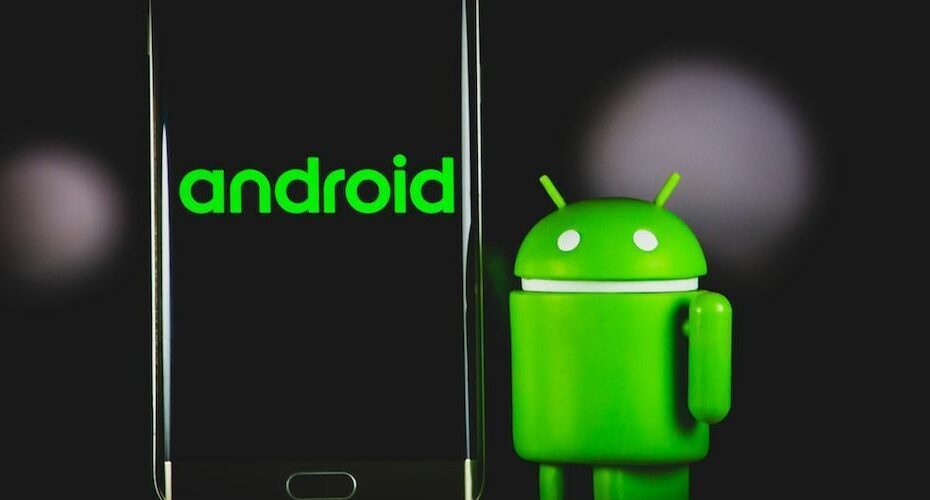Wireless charging is a convenient way to keep your phone charged without having to connect it to a cable. However, it’s important to remember not to leave your phone connected to the charger for long periods of time or overnight. Huawei says, Keeping your battery level as close to the middle (30% to 70%) s possible can effectively prolong the battery life. The official word is to keep your phone charged but not fully charged.
If you’re going to be using your phone wirelessly, it’s recommended that you charge it overnight so that it has enough battery power to last the day. If you’re going to be using your phone wirelessly and are going to be leaving it plugged in all day, make sure to keep it plugged in for a shorter period of time so that it doesn’t overcharge.
Here’s what matters
Wireless charging is a technology that allows devices to be charged by placing them on a surface that emits an electromagnetic field. This technology is becoming more popular because it is more efficient than traditional charging methods, such as charging cables. There are several types of wireless charging, including inductive, capacitive, and radio frequency.
There are some concerns about wireless charging late at night. Some people worry that the electromagnetic field from the charging pad could be harmful if it is too strong. Others worry that the wireless signal could travel through the walls and disturb sleepers. There is not enough research on this topic to know if there are any long-term health risks associated with wireless charging, so it is best to use caution if you want to charge your devices overnight.
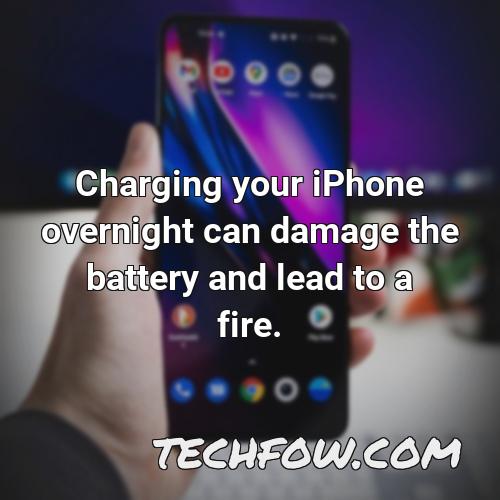
Do Wireless Chargers Stop Charging After 100
Recent research suggests that leaving your phone charging overnight is safe, so long as the battery hits 100%. The chip or sensor continues to work to monitor the battery, and apps continue to run in the background. However, some people still debate whether or not you should do it.
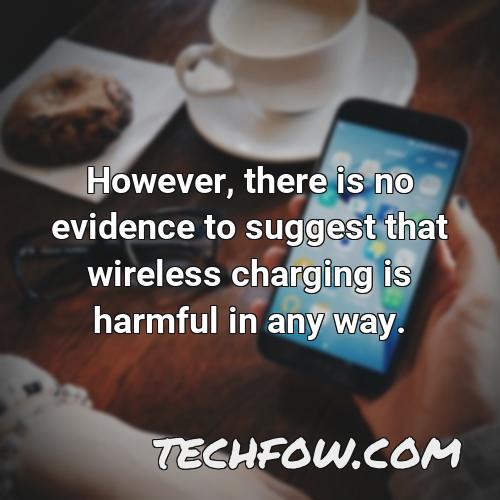
Is It Bad to Charge Your Iphone Overnight
Charging your iPhone overnight can damage the battery and lead to a fire. Charging your phone overnight should be avoided for the safety of your device and yourself. Instead, have a power bank and carry a charger so you can charge your phone when you have a chance.
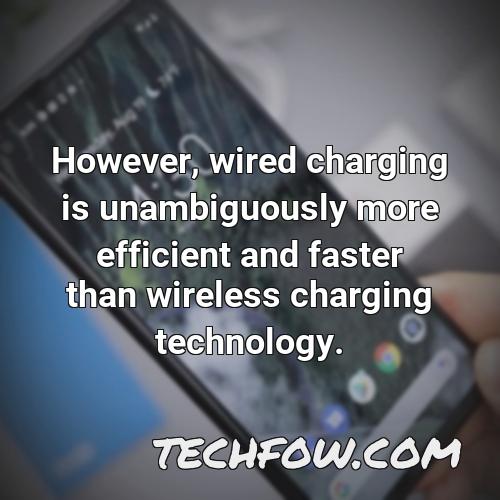
Is a Wireless Charger Better for Your Phone
Wireless charging technology is slowly gaining traction, especially with the recent surge of popularity of smartphones with wireless charging capabilities. However, wired charging is unambiguously more efficient and faster than wireless charging technology. Wireless charging on an average takes twice the time taken by wired charging for one complete recharge of the device.
Thus, if you are looking for a fast and efficient way to charge your smartphone, a wired charger is the better option. Additionally, wireless charging can be problematic in certain instances. For example, if you have a thick case on your smartphone, wireless charging may not be able to reach all of the electrodes in the charging pad. This can lead to a slow charge or no charge at all. Furthermore, wireless charging can be disrupted by interference from other devices, such as cordless phones and microwaves. In short, wired charging is the better option for most people.
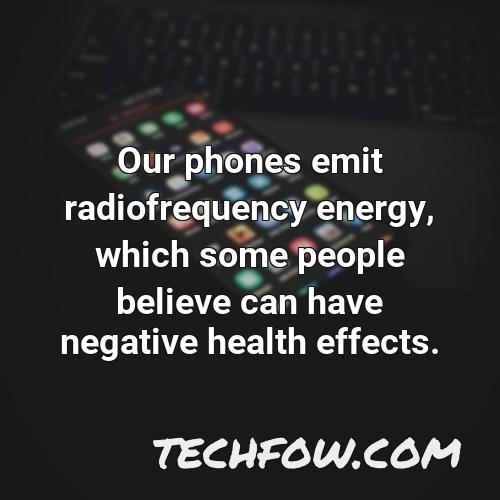
Does Wireless Charging Cause Overheating
There is a lot of debate on whether wireless charging causes overheating. Some people say that it definitely does, while others say that it doesn’t. The truth is that there is no definitive answer as to whether or not wireless charging causes overheating. However, there are a few reasons why overheating may occur and some simple tips that can help to prevent it.
One of the main reasons why overheating may occur with wireless charging is because the phone and the charging pad are not always in the same place. If the phone isn’t in the right spot, the charger will start to produce excess heat and the phone will start to heat up. This can be a big problem because it can cause the phone to overheat and eventually burn out.
One way to avoid this problem is to make sure that the phone is always in the same spot on the charging pad. If you need to move the phone, you can always do so by gently pulling it off of the pad and then placing it back on. Alternatively, you can use a phone holder that is specifically designed for wireless charging.
Another reason why overheating may occur is because of the way the charging process works. With wireless charging, the phone is basically drawing power from the charger instead of from the phone battery. This means that the phone is constantly getting a small amount of power and this can cause the battery to heat up.
One way to prevent this problem is to make sure that the phone is fully charged before you start charging it wirelessly. This will help to prevent the phone from drawing power from the charger and instead will just use the phone battery.
Overall, there is no definitive answer as to whether or not wireless charging causes overheating. However, there are a few things that you can do to help to prevent it from happening. Simply make sure that the phone is in the right spot on the charging pad and that the charging process is being used correctly. If the phone does start to overheat, there are a few ways to cool it down.
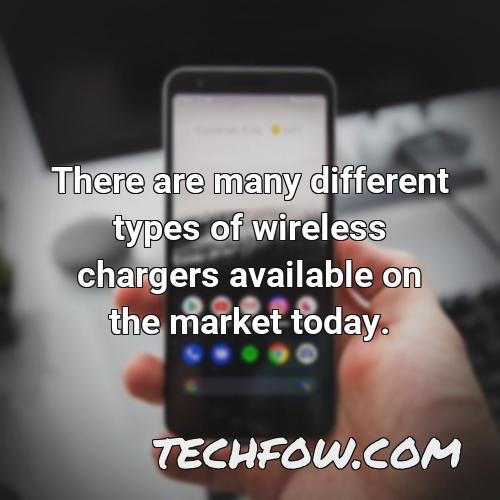
Why Does My Wireless Charger Drain My Battery
There are many different types of wireless chargers available on the market today. Some are better than others in terms of how quickly they can charge a phone, but all of them have one thing in common- they require an uninterrupted power supply in order to work.
The way a wireless charger works is by converting the electromagnetic energy of a nearby power outlet into a low-power form that can be used to recharge the phone. However, this process can be hindered by a number of factors, including low-quality chargers, damaged phone hardware, or power-intensive apps.
This can lead to a situation where the phone is charging quickly, but the battery is still depleted soon afterwards. This is because the phone is using more power to charge than it is getting back in return, which depletes the battery faster than it can be charged wirelessly.
So, if you’re using a wireless charger and your phone is constantly draining battery life, it may be best to look for a better quality charger or switch to a wired connection when possible.
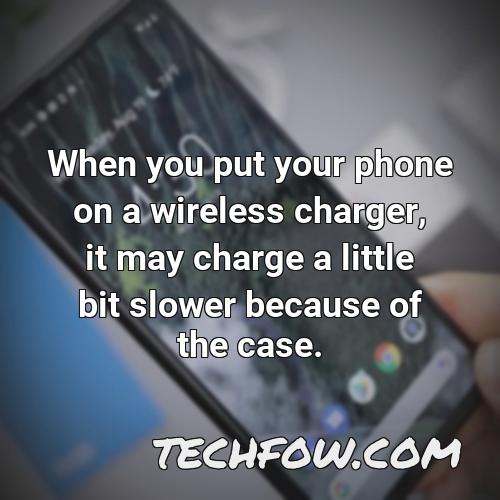
Does Wireless Charging Harm Iphone Battery
Many people are concerned about the potential dangers of wireless charging, as it is seen as a potential threat to the health of the device’s battery. However, there is no evidence to suggest that wireless charging is harmful in any way. In fact, wireless charging actually produces marginally more heat than wired charging, but it doesn’t pose a threat to your phone’s battery. Wireless charging also doesn’t affect battery charge cycles any more than regular wired charging.
Is Wireless Charging Slower With a Case
When you put your phone on a wireless charger, it may charge a little bit slower because of the case. If you have a thick or metal case, it may slow down the charging process. If you take off the case, the wireless charger will work a lot faster.
How Far Away Should Your Phone Be When You Sleep
Our phones emit radiofrequency energy, which some people believe can have negative health effects. Exposure to this type of energy can be dangerous, especially if it’s from our phones near our beds. According to the Federal Communications Commission (FCC), the devices should be at least three feet away from our beds to limit exposure. If we need to use our phones as alarms, we can turn on airplane mode to prevent them from sending or receiving calls and text messages. However, during the day, we should carry our phones in a purse or bag, rather than in our pocket.
What Happens if You Keep Your Phone Charging After 100 Iphone
If you keep your phone charging after it has reached 100% it will not overcharge. This is because the phone will stop trying to charge the battery and will just stay at 100%.
One last thing
Leaving your phone plugged in all day can overcharge it, and that can lead to a shorter battery life. To keep your phone battery lasting the whole day, make sure to charge it overnight.

